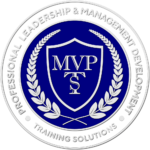Attention to detail is a critical skill that can significantly impact an employee’s effectiveness and success in the workplace. Whether it’s in data analysis, project management, or customer service, an eye for detail ensures accuracy, quality, and professionalism.
While some individuals possess a natural inclination toward attention to detail, others may need to develop and enhance this skill through training courses.
In this blog, we will explore how employees can improve their attention to detail training courses, the benefits it offers, and some effective strategies for achieving greater precision in the workplace.
The Importance of Attention to Detail:
Attention to detail is a fundamental skill that plays a vital role in various professional settings. It involves the ability to focus on even the smallest aspects of a task, project, or process while ensuring accuracy and quality.
Error Reduction:
Attention to detail helps minimize errors and mistakes, which can have significant consequences for businesses. Moreover, precision and thoroughness can prevent costly errors, rework, and customer dissatisfaction.
Quality Assurance:
Employees with strong attention to detail ensure that work is performed to the highest standards, resulting in superior quality outcomes. Additionally, attention to detail helps in catching discrepancies, inconsistencies, and deviations from established procedures.
Professionalism:
Demonstrating attention to detail reflects professionalism and reliability. Hence, employers value employees who consistently deliver high-quality work, paying attention to even the smallest details.
Efficiency and Productivity:
Attention to detail through training courses contributes to increased efficiency and productivity. By accurately understanding and executing tasks, employees can streamline processes, save time, and allocate resources effectively.
Building Trust:
Attention to detail enhances trust between employees, teams, and clients. When colleagues and clients notice a commitment to accuracy, it fosters confidence in the abilities and reliability of individuals and organizations.
Training Courses to Improve Attention to Detail:
Training courses provide valuable opportunities for employees to develop and enhance their attention to detail. Here are some ways in which these courses can contribute to improving this skill:
Knowledge Enhancement:
Training courses offer theoretical knowledge, practical exercises, and case studies that help employees understand the importance of attention to detail and its impact on their work.
Furthermore, they provide insights into the consequences of overlooking details and offer strategies to enhance precision.
Techniques and Tools:
Courses can introduce employees to various techniques and tools specifically designed to improve attention to detail. Similarly, these may include checklists, process frameworks, software applications, and methodologies that support meticulousness in different job roles.
Cognitive Skills Development:
Attention to detail is closely linked to cognitive skills such as observation, memory, and concentration. Training courses often include exercises and activities that help employees enhance these cognitive abilities. Thus, enabling them to notice and process information more effectively.
Effective Strategies for Enhancing Attention to Detail:
While training courses play a significant role in improving attention to detail, employees can also adopt certain strategies to reinforce and maintain this skill. Here are a few effective strategies:
Set Clear Goals:
Clearly define the objectives and expectations of tasks or projects to ensure employees understand the desired level of detail required. Moreover, setting specific goals helps individuals focus their attention and prioritize their efforts accordingly.
Develop a Systematic Approach:
Implement a systematic approach to work that involves creating checklists, using templates, or following established procedures. Such frameworks help employees maintain consistency, reduce the likelihood of oversight, and enhance attention to detail.
Practice Mindfulness:
Encourage employees to practice mindfulness, which involves being fully present and aware of their surroundings, tasks, and responsibilities.
Additionally, mindfulness techniques, such as meditation or deep breathing exercises, can help improve focus and attention.
